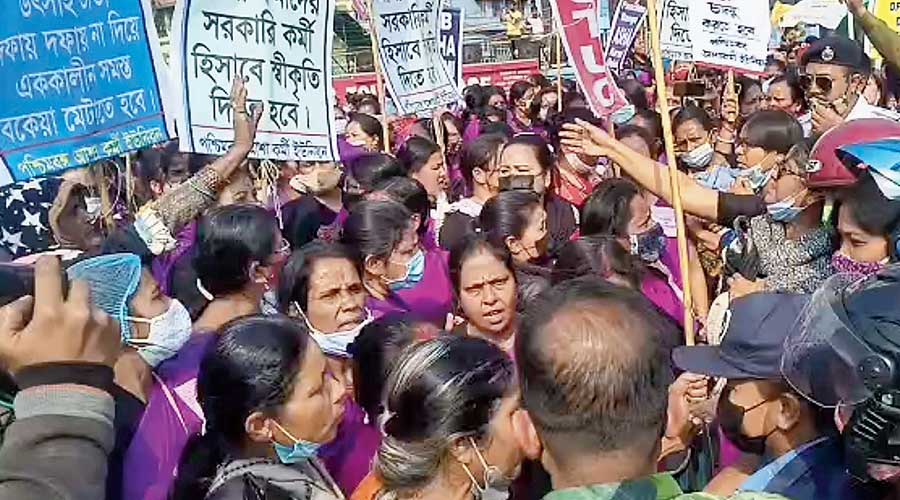Credit often does not trickle down to the agents of change. The World Health Organization bestowing the Global Health Leaders Award-2022 on India’s Accredited Social Health Activists is, therefore, heartening. India’s 10-lakh-strong force of ASHA workers was tasked with spreading awareness about Covid-19, identifying and tracking Covid-19 positive cases as well as carrying out vaccination drives, often, allegedly, without any safety gear. These activities were over and above their routine duties of providing maternal care, immunisation for children and community healthcare. The prime minister, Narendra Modi, has been quick to laud the “dedication and determination” of this constituency. Unfortunately, he seems to have done little to assist these frontline workers when it comes to the severe challenges that they face at the workplace and in their personal lives. They do not get regular remuneration and are paid through incentives, which require a diligent noting down of every task completed. There have been reports of authorities demanding proof before paying ASHAs and payments being delayed. They also lack basic amenities, such as maternity leave, social security, gloves, masks and restrooms in remote locations where they form the only link to access to healthcare. Worse, they face a double-burden. Research by the voluntary organisation, Karnataka Health Promotion Trust, revealed that ASHAs encountered malice in the community over their erratic work hours and faced domestic violence for working late, not to mention the harassment they suffer at the hands of doctors and nursing staff of hospitals to which they accompany patients.
Reforms are needed to uplift the status of ASHAs as critical frontline workers. There is a strong argument to grant them permanent positions with an appropriate monthly salary, fixed working hours and leave. Additionally, they should be given easy access to credit to meet consumption and livelihood needs at reasonable rates — one of the key demands of ASHAs across the country. There should also be scope for them to move up the skills ladder with formal training in primary healthcare — courses in auxiliary or general nursing and midwifery can not only motivate this workforce but also gain them respect. While the award is well-deserved and the cheerleading around it encouraging, what matters is how the Indian government serves its last-mile health workers who are its feet on the ground.

